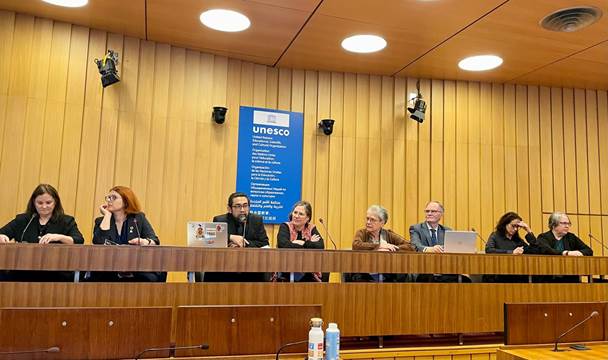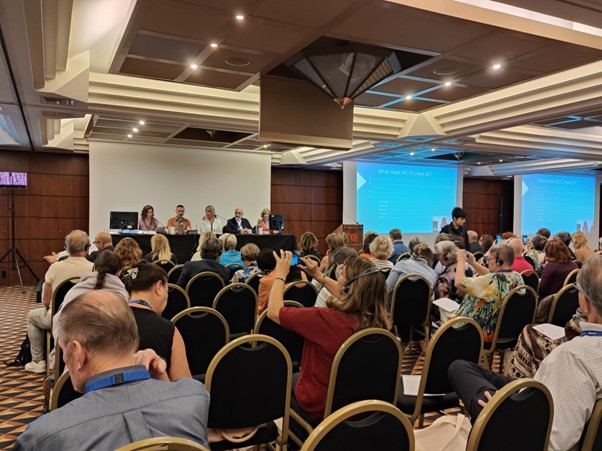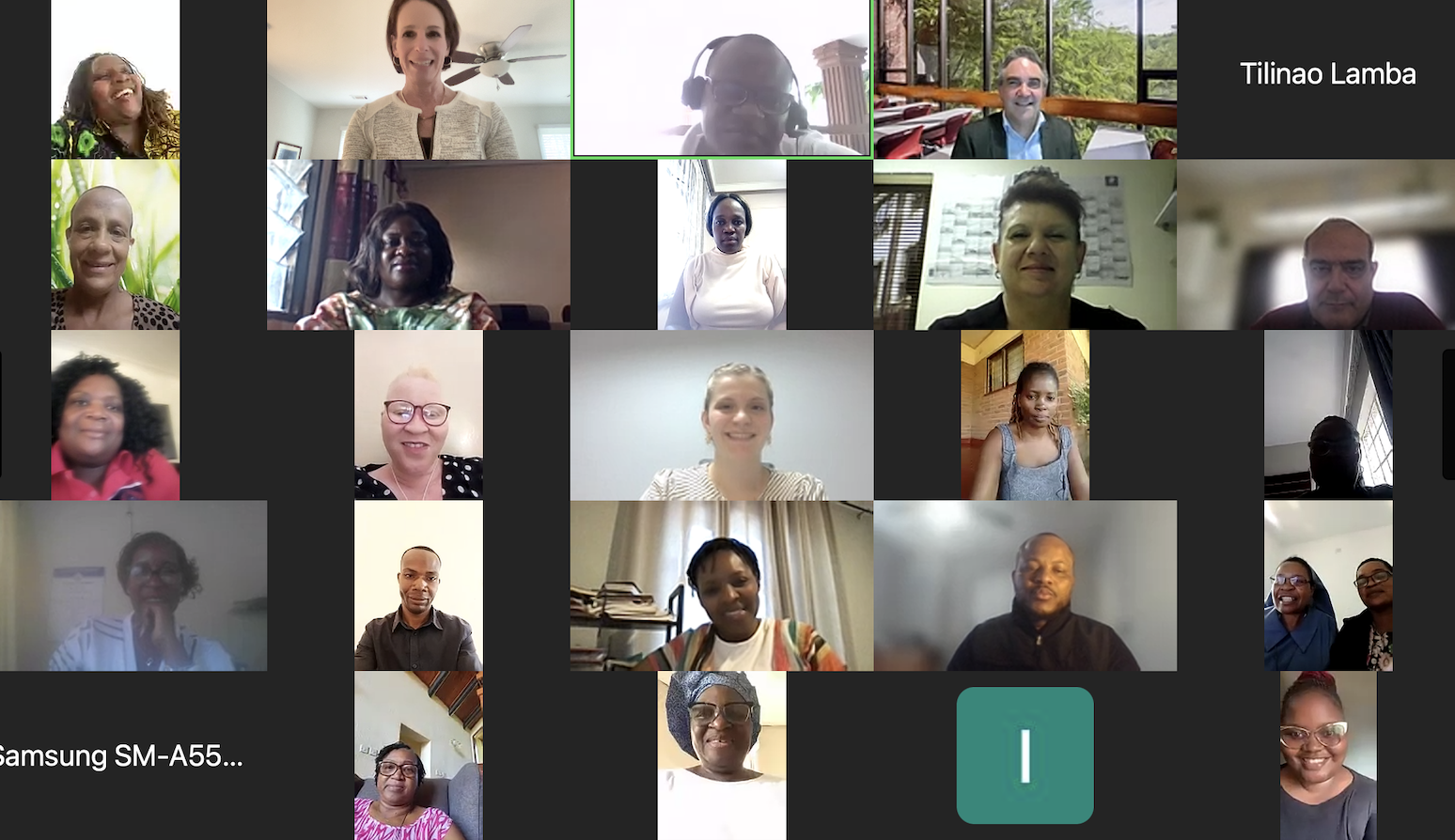1. President
- Provide Leadership: Oversee the overall direction and strategic vision of the association, ensuring alignment with its mission and goals.
- Preside Over Meetings: Chair all Executive Council meetings and general assemblies, ensuring effective governance and decision-making.
- Represent the Association: Serve as the primary spokesperson and representative of the association at international events, conferences, and in media.
- Facilitate Communication: Ensure clear communication between the Executive Council, committees, and members.
- Ensure Compliance: Oversee adherence to the association’s bylaws, policies, and ethical standards.
- Appoint Committee Chairs: Designate chairs for various committees and task forces as needed.
- Support Fundraising Efforts: Collaborate with the Director of Fundraising and other officers to enhance fundraising efforts and sponsorships.
2. President-Elect
- Assist the President: Provide support to the President in executing the strategic plan and other duties.
- Prepare for Presidency: Engage in a mentorship role with the President to prepare for succession and gain a thorough understanding of responsibilities.
- Chair Committees: Lead or participate in key committees as directed by the President or Executive Council.
- Strategic Planning: Collaborate on long-term planning initiatives, ensuring continuity of leadership and strategic direction.
- Represent the Association: Act as a representative for the association when the President is unavailable.
- Support Policy Development: Aid in developing new policies and revising existing ones to keep the association current and effective.
- Succession Planning: Prepare for a seamless transition into the role of President.
3. Secretary
- Maintain Records: Keep accurate minutes of all Executive Council meetings, general assemblies, and official communications.
- Manage Correspondence: Handle all formal communications and correspondence for the Executive Council and the association.
- Ensure Document Accessibility: Ensure that all official documents, minutes, bylaws, and policies are accessible to members and securely stored.
- Support Executive Council Operations: Assist with the planning and organization of Executive Council meetings, including scheduling, agenda preparation, and distribution of materials.
- Facilitate Voting Procedures: Oversee voting processes for Executive Council elections and any other matters requiring member approval.
- Liaise with Members: Serve as a point of contact for Executive Council members and facilitate communication among them.
- Monitor Compliance: Ensure compliance with legal and regulatory requirements concerning documentation and record-keeping.
4. Treasurer
- Manage Finances: Oversee all financial activities, including budgeting, accounting, and financial reporting.
- Prepare Financial Statements: Provide regular financial statements and reports to the Executive Council and membership.
- Develop Budget: Collaborate with the Executive Council to develop an annual budget and monitor expenditures to stay within budget.
- Ensure Compliance: Ensure compliance with financial regulations, including audits, tax filings, and grant reporting.
- Oversee Fund Management: Manage the association’s funds, investments, and reserves according to established policies.
- Support Fundraising Efforts: Work closely with the Director of Fundraising to plan and execute fundraising strategies.
- Financial Planning: Advise the Executive Council on financial planning, risk management, and fiscal sustainability.
5. Director of Regional Outreach & Support
-
Assess Regional Needs: Conduct comprehensive assessments of regions with limited or no established counselling structures, identifying local challenges and apportunities for growth and development in the counselling profession.
-
Develop Regional Counselling Frameworks: Design and implement tailored strategies to establish and strengthen local counselling structures, regional meetings and development ensuring they align with IAC aims, best practices, and ethical standards in the field.
-
Promote Membership and Engagement: Actively promote membership in international counselling associations, fostering a sense of global community and encouraging regional professionals to join and participate in international networks.
-
Facilitate Training and Capacity Building: Encourage participation in IAC events and courses and other professional development opportunities to build local capacity and expertise in counselling, ensuring the creation of sustainable local support systems.
-
Encourage Cross-Regional Collaboration: Develop opportunities for regional professionals to connect with peers from other regions, promoting knowledge exchange and collaboration to elevate the standards and impact of counselling practice globally.
-
Advocate for Counselling Integration: Advocate for the integration of counselling services into local health, education, and social systems, working with local governments and organisations to support policies that enhance access to professional counselling.
-
Respect the Autonomy of Regions: Respect the autonomy of established regions that have their own development and governance structures while focusing on areas where counselling infrastructure is underdeveloped or non-existent, and ensuring alignment with the organization’s mission and vision.
6. Director of Fundraising
- Develop Fundraising Strategy: Create and implement a comprehensive fundraising strategy to support the association’s goals.
- Cultivate Donor Relationships: Build and maintain relationships with donors, sponsors, and partners.
- Organize Fundraising Events: Plan and execute fundraising events and campaigns.
- Grant Writing: Identify grant opportunities and oversee the preparation and submission of grant applications.
- Coordinate with the Treasurer: Work closely with the Treasurer to align fundraising efforts with financial goals.
- Engage Membership in Fundraising: Encourage and support members to participate in fundraising initiatives.
- Monitor Fundraising Performance: Track and report on the effectiveness of fundraising efforts.
7. Director of UN Liaison
- Represent the Association at UN Events: Act as the association’s representative at UN meetings, conferences, and events.
- Build Relationships with UN Agencies: Establish and maintain relationships with relevant UN bodies and agencies.
- Promote the Association’s Agenda: Advocate for the association’s mission and goals within the UN framework.
- Monitor UN Policy Developments: Stay informed on UN policies and initiatives that align with or impact the association.
- Facilitate Collaborative Opportunities: Identify opportunities for collaboration with UN initiatives and programs.
- Report to the Executive Council: Provide regular updates to the Executive Council on UN-related activities and developments.
- Organize UN-Related Events: Coordinate events and activities in partnership with UN agencies.
8. Director of Communication
- Develop Communication Strategy: Create and implement a comprehensive communication strategy for internal and external audiences.
- Manage Public Relations: Oversee the association’s public relations efforts, including media relations and press releases.
- Maintain Digital Presence: Ensure the association's website, social media, and other digital platforms are up-to-date and engaging.
- Produce Newsletters and Publications: Oversee the production of newsletters, journals, and other publications.
- Coordinate Crisis Communication: Manage the association’s response to any communication crises or sensitive issues.
- Support Marketing Efforts: Collaborate with the Director of Fundraising on marketing and promotional campaigns.
- Facilitate Internal Communication: Advise on effective communication between the Executive Council, staff, and members.
9. Director of Standards/Research
- Develop Standards: Create and update standards for ethical practices and professional conduct within the counseling field.
- Promote Research Initiatives: Encourage and support research projects that advance the counseling profession.
- Publish Research Findings: Oversee the publication and dissemination of research findings and reports.
- Collaborate with Academia: Build partnerships with academic institutions to promote education and research.
- Organize Research Conferences: Plan and execute research-focused conferences and workshops.
- Monitor Industry Trends: Stay informed on industry trends and advancements to guide research priorities.
- Provide Guidance to Members: Offer guidance and resources to members engaged in research and professional development.
10. Director of Education/Events
- Develop Educational Programs: Create and oversee educational programs, workshops, and seminars.
- Plan Conferences and Events: Organize and manage the association’s conferences, events, and annual meetings.
- Collaborate with Speakers and Trainers: Identify and coordinate with speakers, trainers, and facilitators for events.
- Evaluate Program Effectiveness: Assess the effectiveness of educational programs and events and implement improvements.
- Liaise with Academic Institutions: Foster relationships with academic institutions to promote continuing education.
- Promote Certification Programs: Oversee the development and promotion of certification and professional development programs.
- Support Member Education: Provide resources and support to members seeking professional development and continuing education.
11. Director of Membership
- Develop Membership Strategy: Create and implement strategies and processes to recruit and retain members.
- Enhance Member Benefits: Develop and promote member benefits, services, and programs.
- Manage Membership Database: Oversee the maintenance of an accurate and up-to-date membership database.
- Facilitate Member Engagement: Encourage member engagement through networking opportunities, forums, and events.
- Respond to Member Inquiries: Handle inquiries and provide support to members regarding their needs and concerns.
- Analyze Membership Trends: Monitor and analyze membership trends and provide reports to the Executive Council.
- Coordinate with Regional Directors: Work closely with Regional Directors to support membership growth at the regional level.
12. Regional Director
- Represent the Region: Act as the main representative for the association in their specific region.
- Coordinate Regional Activities: Plan and oversee regional activities, events, and initiatives.
- Recruit and Retain Members: Work on strategies to recruit new members and retain existing members in the region.
- Facilitate Communication: Serve as a liaison between the regional members and the Executive Council.
- Monitor Regional Needs: Assess the specific needs and concerns of members within the region and communicate these to the Executive Council.
- Promote Association Programs: Promote the association’s programs, resources, and events within the region.
- Collaborate on Regional Growth: Work with other Regional Directors to share best practices and collaborate on growth strategies.




